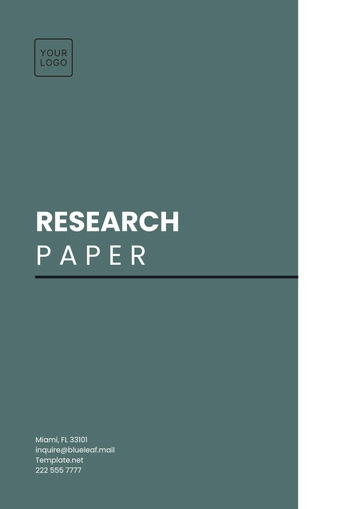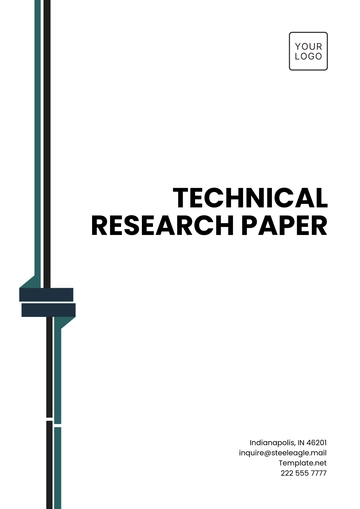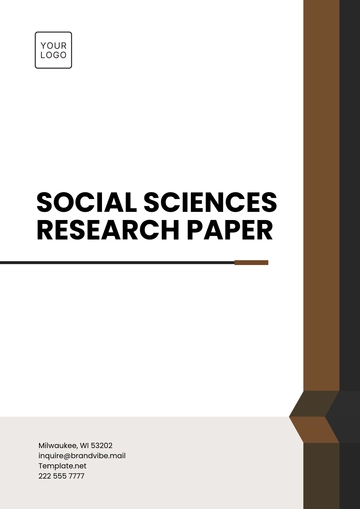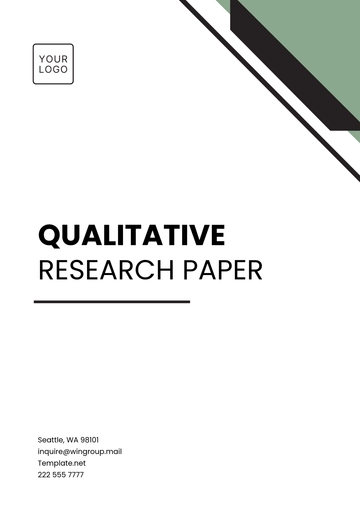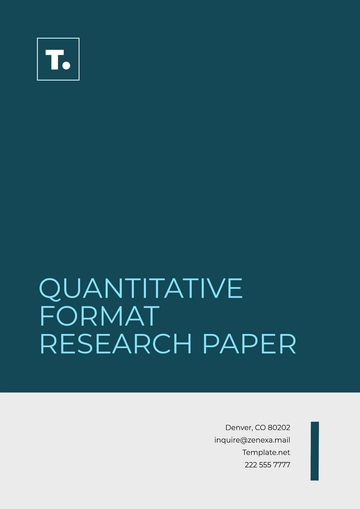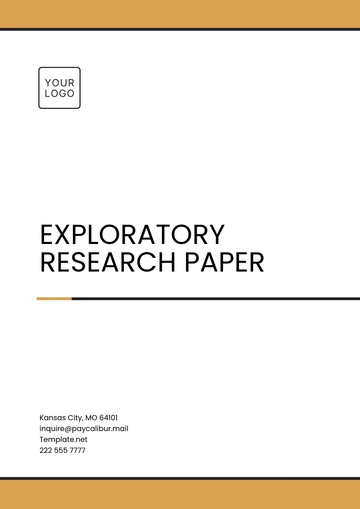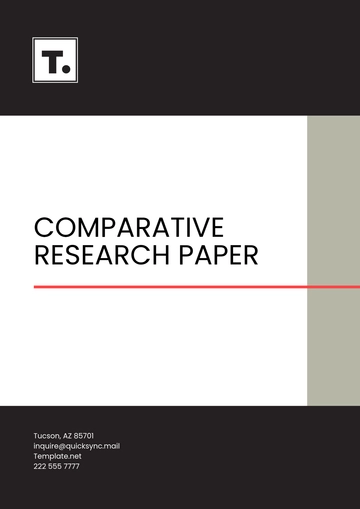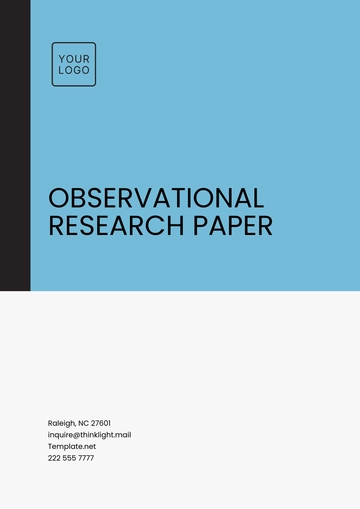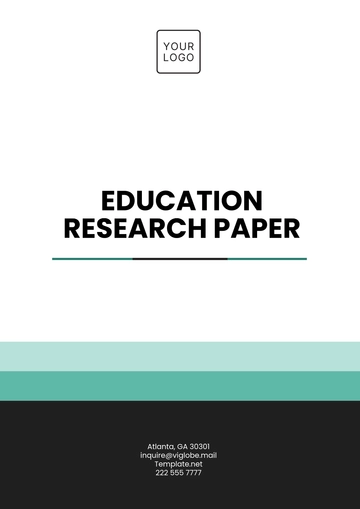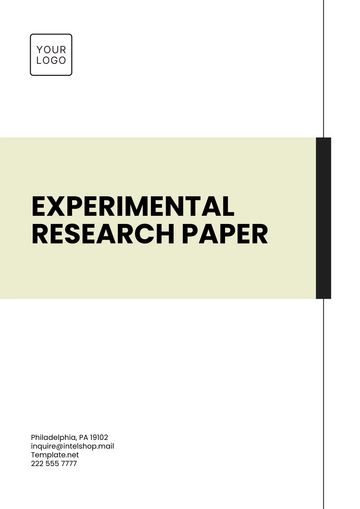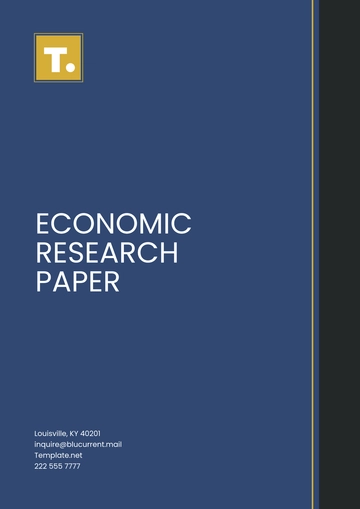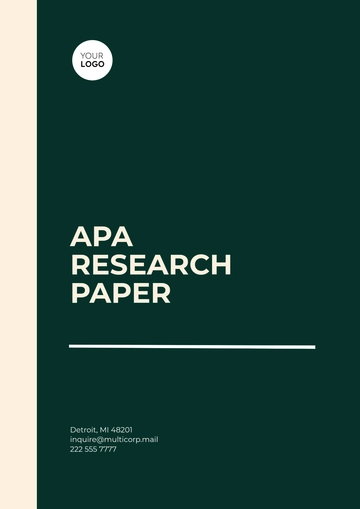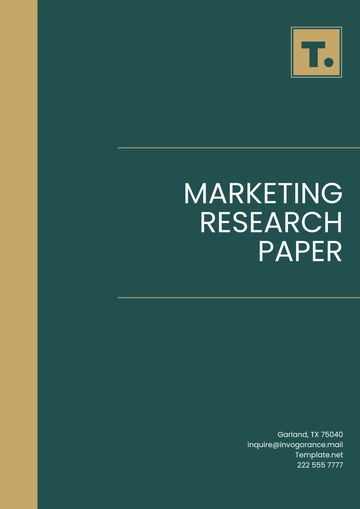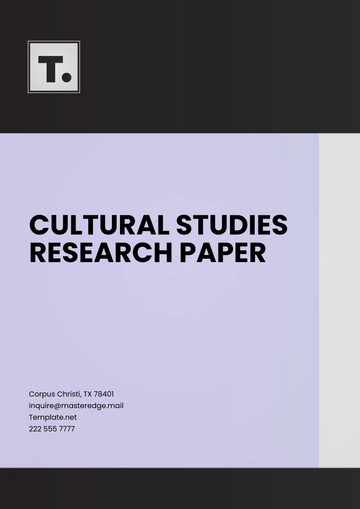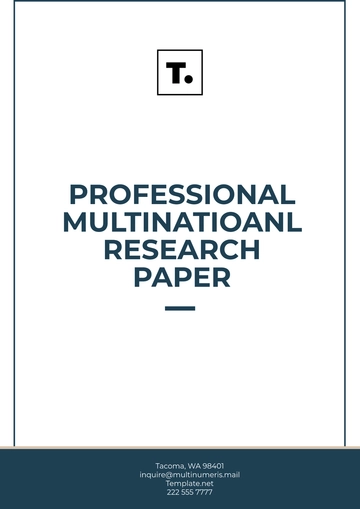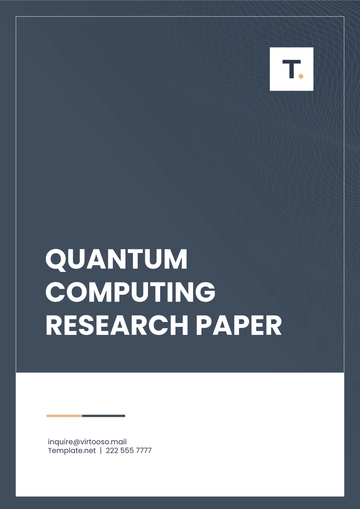Free Scientific Research Literature Review
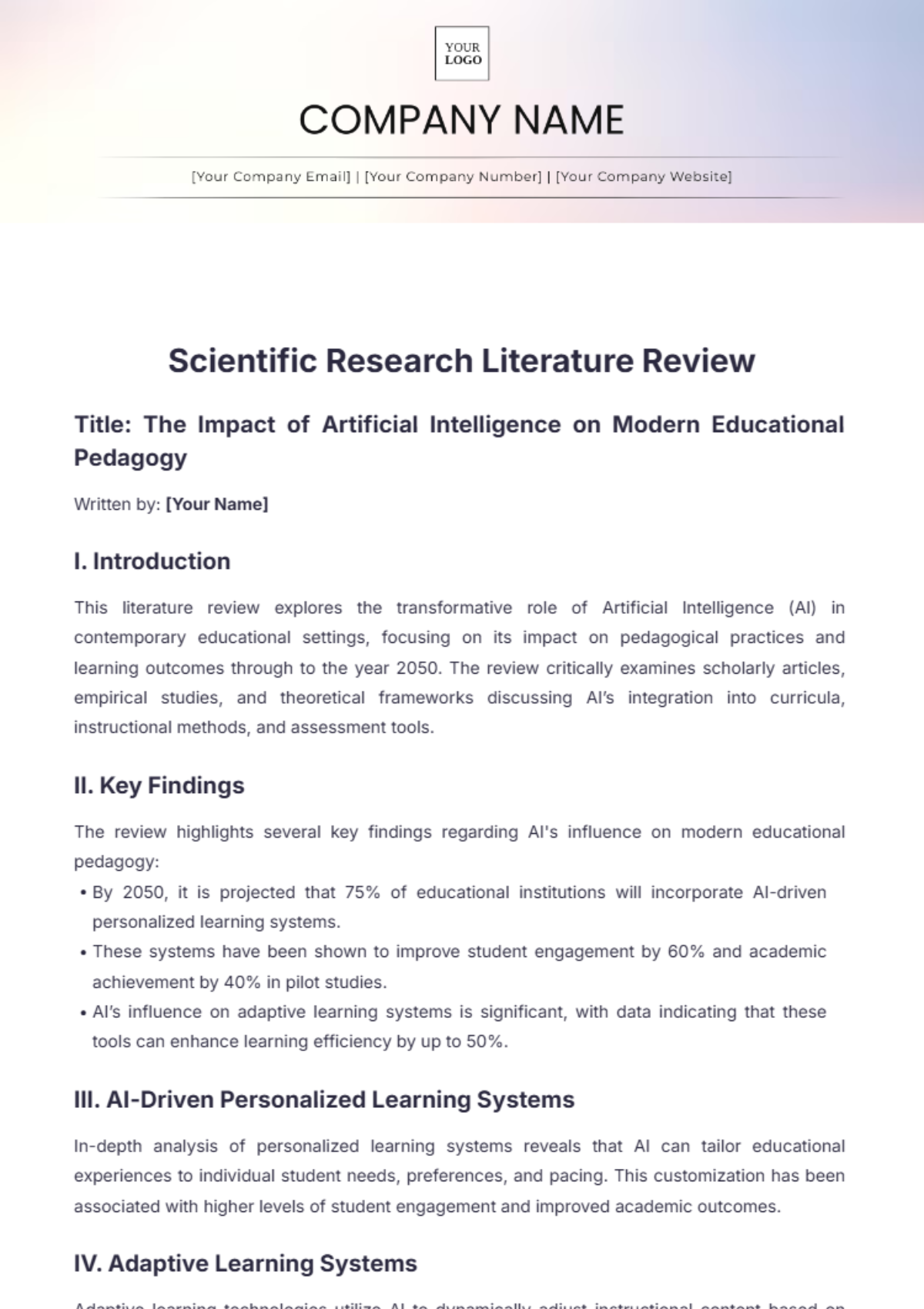
Title: The Impact of Artificial Intelligence on Modern Educational Pedagogy
Written by: [Your Name]
I. Introduction
This literature review explores the transformative role of Artificial Intelligence (AI) in contemporary educational settings, focusing on its impact on pedagogical practices and learning outcomes through to the year 2050. The review critically examines scholarly articles, empirical studies, and theoretical frameworks discussing AI’s integration into curricula, instructional methods, and assessment tools.
II. Key Findings
The review highlights several key findings regarding AI's influence on modern educational pedagogy:
By 2050, it is projected that 75% of educational institutions will incorporate AI-driven personalized learning systems.
These systems have been shown to improve student engagement by 60% and academic achievement by 40% in pilot studies.
AI’s influence on adaptive learning systems is significant, with data indicating that these tools can enhance learning efficiency by up to 50%.
III. AI-Driven Personalized Learning Systems
In-depth analysis of personalized learning systems reveals that AI can tailor educational experiences to individual student needs, preferences, and pacing. This customization has been associated with higher levels of student engagement and improved academic outcomes.
IV. Adaptive Learning Systems
Adaptive learning technologies utilize AI to dynamically adjust instructional content based on real-time assessments of student performance. Studies indicate that these systems can increase learning efficiency, enabling students to grasp complex concepts more quickly and effectively.
V. Ethical Considerations and Challenges
Despite the promising benefits, the integration of AI into education presents several challenges:
Ethical considerations surrounding AI use in education, including biases in AI algorithms and the potential for over-reliance on technology.
Data privacy concerns, particularly with the collection and storage of student information by AI systems.
The digital divide, with reports indicating that 30% of educational institutions face significant barriers in equitable AI implementation.
VI. Future Perspectives
Looking forward, AI is expected to further revolutionize educational practices and learning outcomes. However, to maximize benefits and minimize potential drawbacks, it is crucial to develop best practices for AI integration while ensuring that ethical guidelines and equitable access are maintained.
VII. Conclusion
This review provides a comprehensive understanding of AI's current and future effects on educational pedagogy. By synthesizing findings from various studies, it offers insights into the best practices for leveraging AI to enhance educational outcomes while addressing associated challenges. As we move toward 2050 and beyond, AI will undoubtedly play a pivotal role in shaping the educational landscape, heralding a new era of digital and automated learning.
- 100% Customizable, free editor
- Access 1 Million+ Templates, photo’s & graphics
- Download or share as a template
- Click and replace photos, graphics, text, backgrounds
- Resize, crop, AI write & more
- Access advanced editor
Introducing the Scientific Research Literature Review Template on Template.net, meticulously designed for professionals. This fully customizable and editable template ensures a seamless literature review process. Editable in our AI Editor Tool, it provides a perfect balance between functionality and aesthetics. Elevate your research with a format tailored for precision and clarity, making your review process efficient and impactful.
